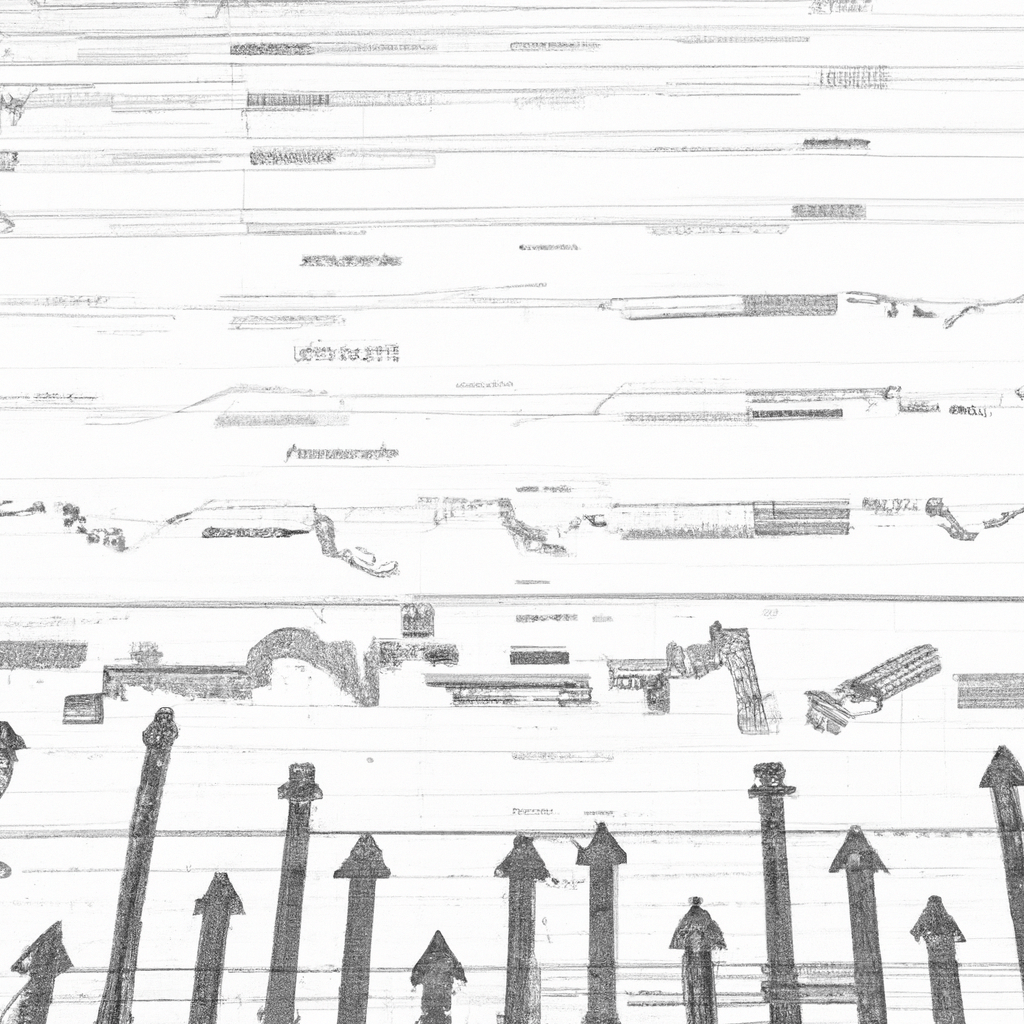Welcome to our comprehensive guide on financial derivatives, a powerful tool in the world of finance. In this article, we will delve into the intricacies of futures contracts, explore the world of stock derivatives, and provide strategies and tips for success in futures and options trading. Whether you are a beginner looking to understand the basics or an experienced trader seeking to enhance your skills, this article has something for everyone. So, grab a cup of coffee and join us as we navigate the exciting realm of financial derivatives.
1. “Understanding Financial Derivatives: A Beginner’s Guide to Futures Contracts”

Financial derivatives have become an integral part of the modern financial markets, providing investors with a way to manage risk, speculate on price movements, and enhance returns. One of the most commonly used financial derivatives is a futures contract.
A futures contract is a legally binding agreement between two parties to buy or sell an asset, such as commodities, currencies, or financial instruments, at a predetermined price and date in the future. These contracts are standardized and traded on organized exchanges, making them highly liquid and easily accessible to market participants.
For beginners in the world of financial derivatives, futures contracts can seem complex. However, understanding the basics can provide a solid foundation for further exploration. Let's delve into the key aspects of futures contracts.
Firstly, futures contracts are used for hedging and speculation purposes. Hedging allows market participants to protect themselves against potential price fluctuations. For example, a farmer can use futures contracts to lock in a price for their crops, ensuring a certain level of income regardless of market conditions. On the other hand, speculators seek to profit from price movements by taking positions in futures contracts without any intention of owning the underlying asset.
Secondly, futures contracts are standardized in terms of quantity, quality, and delivery date. By standardizing these aspects, futures contracts ensure transparency and facilitate efficient trading. For instance, a futures contract for crude oil may represent 1,000 barrels of oil of a specific grade, deliverable in a specified month.
Moreover, futures contracts are marked to market daily, meaning that gains or losses are settled on a daily basis. This feature ensures that participants have sufficient capital to honor their obligations and reduces the risk of default. It also allows investors to exit their positions before the contract's expiration date by offsetting their positions with opposite trades.
Futures contracts also offer leverage, which means that traders can control a larger position with a smaller initial investment. However, it is important to note that leverage magnifies both profits and losses, making futures trading a high-risk endeavor. Beginners should exercise caution and employ risk management strategies when trading futures contracts.
In conclusion, futures contracts are a vital component of the financial derivatives market. They provide opportunities for risk management and speculation, allowing investors to diversify their portfolios and potentially enhance returns. Beginners can benefit from understanding the basics of futures contracts before diving into the world of futures and options trading. By grasping the concepts of standardized contracts, hedging, speculation, and leverage, newcomers can navigate this complex market with greater confidence.
2. “Exploring the World of Stock Derivatives: A Comprehensive Overview”

Financial derivatives have become an integral part of the global financial markets, providing investors with opportunities to hedge risks, speculate on price movements, and diversify their portfolios. Among the various types of financial derivatives, stock derivatives, particularly futures and options, have gained significant popularity.
Stock derivatives, also known as equity derivatives, are financial instruments whose value is derived from an underlying stock or a portfolio of stocks. They enable investors to participate in the price movements of the underlying asset without owning the actual shares. This allows for greater flexibility and leverage in trading.
One common type of stock derivative is a futures contract. A futures contract is an agreement between two parties to buy or sell a specified quantity of an underlying asset (in this case, a stock) at a predetermined price and future date. It serves as a binding contract and is traded on regulated exchanges. Futures contracts enable investors to speculate on the future price of a stock, allowing them to profit from both rising and falling markets.
Options are another popular type of stock derivative. Unlike futures contracts, options provide the holder with the right, but not the obligation, to buy or sell the underlying stock at a predetermined price within a specified timeframe. Options can be either call options (which give the holder the right to buy) or put options (which give the holder the right to sell). This flexibility allows investors to tailor their trading strategies according to their market outlook and risk appetite.
For beginners venturing into the world of stock derivatives, it is crucial to have a comprehensive understanding of how these instruments work. A beginner's guide to futures and options trading can provide valuable insights into the mechanics, terminology, and strategies involved. It is essential to grasp concepts such as strike price, expiration date, margin requirements, and various trading strategies to make informed decisions and manage risks effectively.
When engaging in futures options trading, it is important to carefully consider factors such as market trends, volatility, and liquidity. Conducting thorough research and analysis, keeping up with market news, and seeking guidance from experienced professionals can greatly enhance one's ability to navigate the complexities of stock derivatives.
In conclusion, stock derivatives, including futures contracts and options, offer investors a wide range of opportunities in the financial markets. With the right knowledge and understanding, individuals can utilize these instruments to hedge risks, speculate on price movements, and enhance their investment portfolios. By delving into the world of stock derivatives, investors can unlock potential profits and diversify their trading strategies while mitigating potential downsides.
3. “Mastering Futures and Options Trading: Strategies and Tips for Success”

Mastering Futures and Options Trading: Strategies and Tips for Success
In the complex world of financial derivatives, futures and options trading play a crucial role. These investment vehicles offer traders the opportunity to profit from price fluctuations in various assets, including stocks, commodities, and currencies. However, navigating the intricacies of futures and options trading can be challenging, especially for beginners. This section aims to provide a comprehensive guide to mastering futures and options trading, offering strategies and tips for success.
1. Understanding Futures Contracts:
A futures contract is a standardized agreement between two parties to buy or sell an asset at a predetermined price and date in the future. It allows traders to speculate on the future price movements of the underlying asset without actually owning it. To master futures trading, beginners should familiarize themselves with the key aspects of futures contracts, such as contract size, expiration dates, and margin requirements. Additionally, gaining a deep understanding of the factors that influence futures prices, such as supply and demand dynamics and market sentiment, is crucial for making informed trading decisions.
2. Exploring Options Trading:
Options are financial derivatives that grant the holder the right, but not the obligation, to buy or sell an asset at a predetermined price within a specific time frame. Options trading can be an effective strategy for hedging against potential losses or speculating on price movements. Beginners should start by understanding the two types of options: calls and puts. Calls give the holder the right to buy an asset, while puts give the holder the right to sell. Learning about strike prices, expiration dates, and option pricing models is essential for successful options trading.
3. Developing Trading Strategies:
To excel in futures and options trading, traders must develop effective trading strategies. One popular strategy is trend following, which involves identifying and capitalizing on market trends. Another approach is spread trading, where traders simultaneously buy and sell related contracts to profit from price differentials. Additionally, risk management techniques, such as setting stop-loss orders and using leverage judiciously, are crucial for mitigating potential losses. It is essential for traders to thoroughly backtest and evaluate their strategies before implementing them in live trading.
4. Staying Informed and Updated:
The world of financial derivatives is dynamic and ever-changing. To succeed in futures and options trading, staying informed about market news, economic indicators, and geopolitical events is crucial. Traders should regularly analyze charts and technical indicators to identify potential trading opportunities. Additionally, keeping abreast of regulatory changes and market trends can provide valuable insights for making informed decisions.
In conclusion, mastering futures and options trading requires a combination of knowledge, skills, and experience. This section has provided a beginner's guide to financial derivatives, focusing on futures and options trading. By understanding the fundamentals, exploring different strategies, and staying informed, traders can increase their chances of success in this exciting and potentially lucrative field.
In conclusion, financial derivatives, specifically futures contracts and stock derivatives, offer a wide range of opportunities for investors to diversify their portfolios and manage risk. This article has provided a beginner's guide to understanding financial derivatives, an overview of stock derivatives, and strategies and tips for success in futures and options trading. By familiarizing themselves with these concepts and implementing the strategies discussed, investors can navigate the complex world of financial derivatives with confidence. Whether you are a beginner or an experienced trader, futures and options trading can be a valuable tool in achieving financial goals. So, take the time to educate yourself, explore the possibilities, and embrace the potential of futures and options trading in your investment journey.





